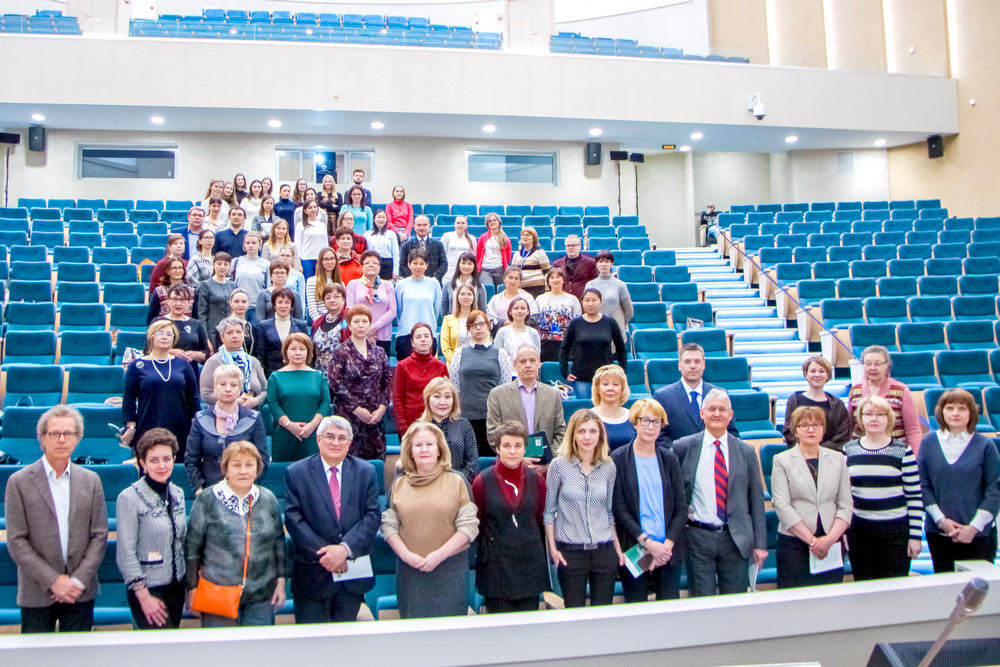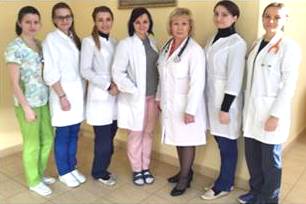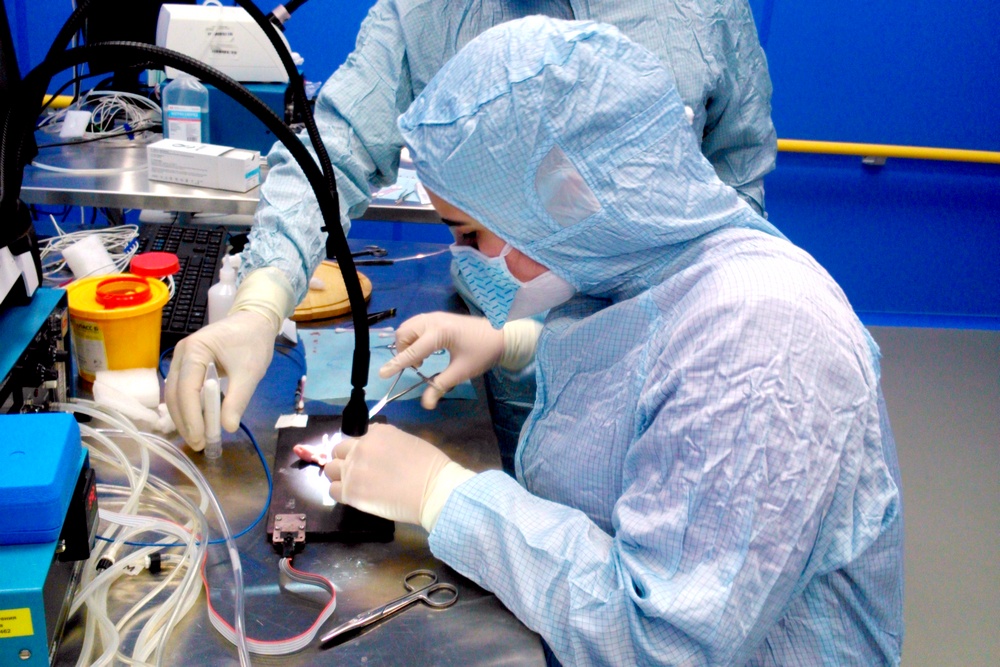Pediatric Endocrinology Laboratory



 Irina Nikitina, MD, DSc
Irina Nikitina, MD, DScHead of Laboratory
Major objectives
- Conducting research aimed at establishing the mechanisms of development and progression of endocrine disorders in children and adolescents to develop the programs for their prevention and optimization of diagnosis and treatment.
- Developing new technologies for the treatment of sex development disorders, including delayed onset of puberty and hypogonadotropic hypogonadism in children and adolescents.
- Improving the diagnostic and treatment methods for diseases associated with monogenic disorders of insulin secretion.
History
The Pediatric Endocrinology Laboratory was established in the Institute of Endocrinology in 2009. Its first head was pediatric endocrinologist Yulia Skorodok. Since 2010, the Laboratory has been headed by Irina Nikitina.
The clinical base for pediatric endocrinology was established in 2011 when 10 specialized beds were allocated in the first pediatric department of the Centre.
In 2017, when a new Children's Rehabilitation Clinic was opened, the number of specialized beds in pediatric endocrinology increased to 15. The Department has been headed by Anastasia Todieva, one of the first specialists at the Pediatric Endocrinology Laboratory.
Today, the Department provides diagnostic and therapeutic services for children with endocrine disorders from various regions of Russia and neighboring countries.
Some types of medical care are unique to our country and even some foreign countries. This refers to the successful treatment of children with congenital hyperinsulinism, genetic variants of sex differentiation disorders, etc.
Major research areas
- Translational research in the field of neuroendocrine regulation of sexual development and sex differentiation, including an in-depth study of kisspeptin mechanisms of activation / reactivation of the hypothalamic-pituitary-gonadal axis.
- Study of the molecular genetic basis for a number of endocrine diseases in children and adolescents, including sex differentiation disorders, congenital hyperinsulinism, monogenic diabetes and others.
- Development of personalized recommendations for children and adolescents with obesity and vitamin D deficiency aimed at reducing the risk of metabolic disorders and cardiovascular risk.
- Long-term follow-up of somatic and mental health of children born to women with gestational diabetes mellitus.
- Study of comorbidity, metabolic, somatic and cognitive disorders in children with severe obesity.
Major scientific achievements
- Based on the translational research aimed at clarifying the neuroendocrine mechanisms of sex development disorders, the role of the kisspeptin system in the central forms of hypogonadism has been established and new management technologies have been proposed.
- The role of genetic variants in the formation of sex development disorders has been established, associations with clinical phenotype and prognosis of sexual self-identification have been identified.
- Personalized algorithms for screening and correction of vitamin D deficiency in obese children and adolescents have been introduced into clinical practice.
- Based on the studies carried out, the optimal glycemic values in pregnancy complicated by gestational diabetes have been established to reduce the negative metabolic and somatic consequences of this condition on the offspring.
Newly introduced technologies
- Based on the ongoing clinical and experimental studies, new diagnostic laboratory markers of delayed puberty of central origin have been proposed and new therapeutic technologies for sex development disorders are being developed.
- An algorithm for screening of children and adolescents with obesity and vitamin D deficiency has been developed, and recommendations for personalized approaches to its correction have been substantiated.
- The optimal values of glycemic control in pregnancy complicated by gestational diabetes mellitus have been validated.
- A decision-making algorithm for comprehensive care in sex development disorders based on the patient’s molecular genetic and psychological profile has been implemented.
Participation in State Assignments
The specialists of the Pediatric Endocrinology Laboratory have been carrying out research on various topics approved under the State Assignment. The topic of the first State Assignment was devoted to the study of the associations of clinical and genetic characteristics of monogenic diabetes in children. Subsequently, the topics of research under State Assignments were centered on research in the field of neuroendocrine and genetic basis for sex development disorders as well as methods of their correction. The supervisor of all research projects under State Assignments was the Head of Laboratory, Irina Nikitina.
Currently, the approved topic of research carried out by the specialists of the Laboratory is “Development of new technologies for the treatment of sex development disorders in children and adolescents based on the studies of molecular genetic and neuroendocrine mechanisms for delayed onset of puberty and hypogonadism” (2018–2020). Also, the Pediatric Endocrinology Laboratory has been involved in a number of other research projects at Almazov Centre. For many years, it has been conducting studies in the field of physiology and pathology of sex development, sex differentiation disorders, vitamin D deficiency in obese children, gestational diabetes and much more.
International collaboration
The Pediatric Endocrinology Laboratory has been closely cooperating with leading university clinics and research departments of pediatric endocrinology in Europe and the USA: Karolinska Institutet (Sweden), Congenital Hyperinsulinism Center at Greifswald University Hospital (Germany), Department of Pediatric Endocrinology at the University of Chicago (USA), Nicolae Testemițanu State University of Medicine and Pharmacy (Moldova).
The specialists of the Laboratory present the results of their research at international scientific and practical conferences and forums. The head of the Laboratory is a member of the European Society for Pediatric Endocrinology (ESPE).
Nikitina IL, Yuchlina Yu N, Vasilieva E Yu, Nagornaya II, Grineva EN, Kelmanson IA. Plasma Kisspeptin levels in boys with hypogonadotropic delayed puberty. Minerva Endocrinologica,2020 IF 1,817
Zakharova I., Klimov L., Kuryaninova V., Nikitina I., Malyavskaya S., Dolbnya S., Kasyanova A., Atanesyan R., Stoyan M., Todieva A., Kostrova G., Lebedev A .Vitamin d insufficiency in overweight and obese children and adolescents. Frontiers in Endocrinology. 2019. Т. 10. № MAR.С. 103. IF 3,675
Nikitina I.L., Kudryashova E.K., Batrutdinov R.R., Kostareva A.A., Kelmanson I.A., GrinevaE.N. Next-generation dna sequencing in an appropriate sex assignment: case report of two phenotypically similar patients with 46, XY disorder of sex development. European Journal of Medical Case Reports. 2019. Т. 3. № 2.С. 68-73.
